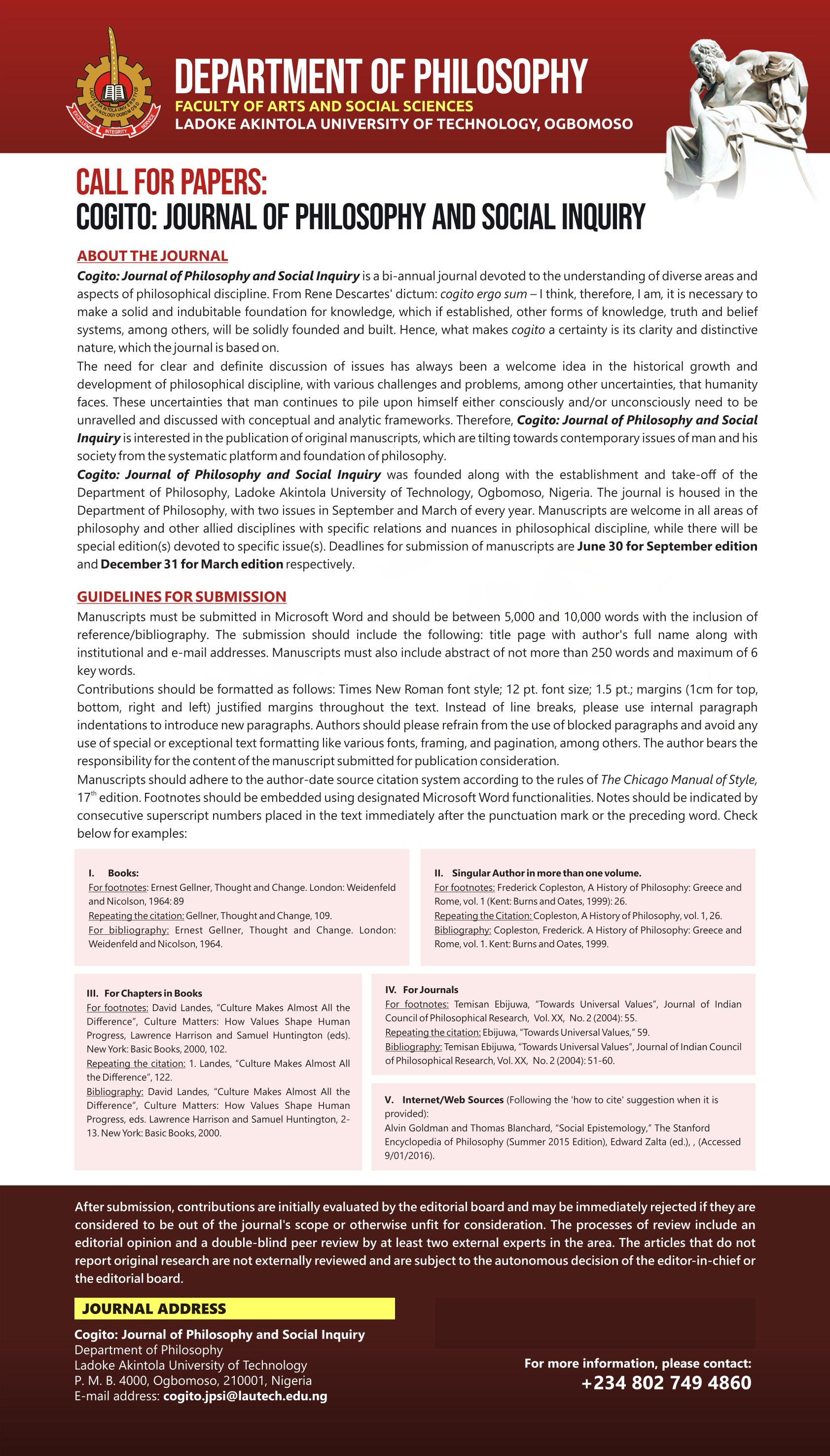It is a truism that philosophy is the bedrock and queen of all other sciences and disciplines. Thus, any understanding of natural, physical and applied sciences and technology without proper foundation in philosophy is a historical. This is because it (philosophy) interrogates and brings to fore hidden questions and issues about the sciences. The ‘why-study’ of philosophy ‘births’ and develops the existence and sustenance of other disciplines and forms of knowledge. The principal task of philosophy is to analyse the veracity of methods used in the sciences and allied disciplines as it allows man to probe deeper and uncover assumptions, which are not only implicit in scientific and technological practice, but which practitioners and students of sciences do not explicitly discuss, examine and analyse.
The usefulness and significance of philosophy to students, other cognate departments, faculties and programmes, in any university system are immense. Notably, graduates of philosophy can fit into a variety of situations they find themselves, given the reality philosophy training would equip them with. Essentially, this is plausible because their training will help to improve their flexibility and adaptability; hence, graduates of philosophy are more comparatively and more competitively fit as trainees in varied opportunities of employment. Graduates of philosophy, therefore, do well in civil service, public service, consultancy and research firms, among others, especially in areas where job demands involve understanding the problematic nature of humans based on normative assumptions. They also do well in the following areas: teaching and research institutes, security and intelligence agencies, human resources, and journalism, among others.
In a more obvious manner, the trainings, styles and methods being employed in the process of moulding students of philosophy is of immense contributions to themselves and the society at large. This is based on the systematic application of diverse theories, thoughts, and ideologies, among others, along the historical perspectives and under-linings of philosophical discourse, which definitely make and allow students and graduates to have adequate knowledge for the sustenance and survival of their worlds. It must be emphasised that graduates of philosophy are well sought-out for as their training imbue them with the following attitudinal qualities that make them do better in job situations: critical thinking, intellectual alertness, initiative, moral probity, sound, mental and theoretical analysis.

